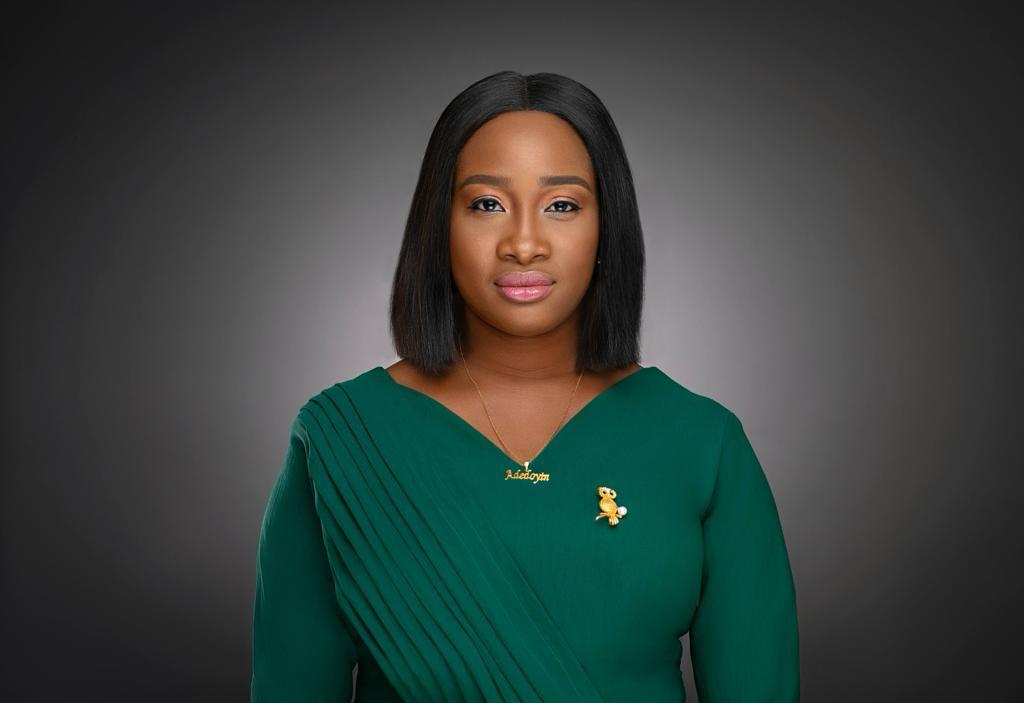Towards shifting the future for girls across Africa, Tosin Durotoye is addressing one of the most pressing barriers to girls’ education in Africa – ‘period poverty’ through her foundation, The Bloom Africa – a diaspora-driven, Africa-focused, and girl-centered nonprofit dedicated to nurturing the full leadership journey of Black girls and women, from girlhood to global leadership, in partnership with Delta Airlines and the United Nations.
Through this groundbreaking collaboration, the sum of $1.2 million worth of reusable period underwear was recently delivered to Nigeria, reaching an estimated 30,000+ girls.
For too many girls across Africa, the inability to access menstrual products forces them to miss school or drop out entirely. In Nigeria alone, one in 10 girls miss school during their periods, and research shows that over 25 per cent of schoolgirls lack access to safe menstrual products or adequate sanitation facilities. The economic burden is also significant – families could spend as much as 10 per cent of their monthly income on disposable menstrual products, making them unaffordable for millions.
Those were Durotoye’s words as basis for the intervention. She however revealed that currently, the UN has begun efforts to distribute the underwear across various states in Nigeria including Borno State where the supplies are reaching girls in IDP camps.
“In October, during the week of the International Day of the Girl Child, we’ll mark this milestone with several major events: An official handover of supplies to Lagos State Government. A UN mission trip to Maiduguri to distribute products to girls in IDP camps. Our annual Girl in Bloom Summit, hosted in partnership with Junior Achievement Nigeria, convening young leaders and changemakers (over 1,000 girls are expected to attend).
“This story isn’t just about one campaign – it’s about shifting the future for girls across Africa. With ongoing support from Delta Air Lines and the UN, we aim to make this an annual campaign that transforms how period poverty is addressed on the continent,” Durotoye stated.
On the alleviation of period poverty initiative, Durotoye, who wears a variety of hats as an innovation strategist, social impact leader, and advocate for gender equity and diversity, and currently serve as an Innovation Strategist at Delta Air Lines, revealed that at The Bloom Africa, period equity is fundamental to gender equity.
“Unfortunately, what seems like basic knowledge for some girls and women is still out of reach for millions who face cultural stigma, misinformation, or lack of access to menstrual products. In Nigeria, an estimated 37 million girls face period poverty and millions miss school every month simply because they don’t have safe and affordable ways to manage their periods. We launched this initiative because no girl should be held back by a natural biological process. We know that providing menstrual products and education isn’t just about hygiene; it’s about dignity, confidence, and opportunity. When a girl can manage her period safely and confidently, she can stay in school, participate fully in her community, and pursue her dreams without shame or limitation.”
Asked to expatiate on the term ‘menstrual products’ as it may seem that most girls who miss school or work during their periods do so due to intense dysmenorrhea rather than lack of sanitary products, Durotoye said: “Period pain (dysmenorrhea) is a significant challenge for many girls and women, contributing to absenteeism from school and work. However, for millions of girls across Africa, the lack of access to menstrual products remains a critical barrier. When we talk about menstrual products, we mean all materials used to manage menstruation safely including sanitary pads, menstrual cups, tampons, and reusable period underwear. Many girls in rural or low-income areas resort to unsafe substitutes like cloth, paper, or even leaves, which can cause infections and shame. Our focus on reusable period underwear tackles both access and sustainability by offering a safe, affordable, and environmentally friendly solution that empowers girls with consistent, dignified menstrual care.”
On where and when the reusable period underwear was delivered in Nigeria, she answered: “A few months ago, The Bloom Africa delivered 100,000 pairs of reusable period underwear to Nigeria. This is the largest single donation of menstrual products by a single donor – valued at $1.2 million. Distribution began with an official handover of 8,000 pairs at an Internally Displaced Persons (IDP) Camp in Maiduguri, Borno State, on October 7, followed by another handover to the Lagos State Government on October 9. The initiative was led by The Bloom Africa in partnership with UNFPA, supported by Delta Air Lines, who transported the supplies at no cost. Each pair of underwear features absorbent, leak-proof, and washable layers that provide lasting protection. They can be reused for up to two years, making them a practical and sustainable alternative to disposable pads. This approach saves costs, reduces waste, and advances menstrual dignity across communities.”
Beyond reusable underwear, are there future plans to help girls and women tackle intense period pain, especially given that many can’t afford medications or have limited knowledge about appropriate treatments? Her reply: “At The Bloom Africa, we believe that period poverty is about more than access to products; it’s about education, health, and empowerment. Our partnership with UNFPA, the United Nations agency for women and girls, ensures that beneficiaries receive not only essential products but also guidance and support in period management. We also continue to work closely with our Global Ambassadors – a network of young women across Africa who have graduated from our leadership programme focused on social impact. These ambassadors lead community initiatives aligned with the United Nations Sustainable Development Goals (SDGs), with a strong emphasis on addressing period poverty. Through their efforts, we’ve been able to educate girls in Nigeria, Kenya, Mozambique, and Zimbabwe on menstrual health and management. Our vision is holistic: we want every girl to have the products, knowledge, and confidence to manage her period with dignity and without fear.”
About The Bloom Africa and its partnership with Delta Air Lines and the United Nations, Durotoye stated: “The Bloom Africa is a social impact organisation dedicated to the development and empowerment of Black and Diasporan girls through leadership training, funding, and community support. Our work focuses on creating spaces and opportunities for girls to thrive in education, leadership, and purpose. Our partnership with the United Nations Population Fund (UNFPA) – the UN agency for women and girls – has been instrumental in scaling our impact. UNFPA’s mission to promote reproductive health and gender equality aligns perfectly with our work on menstrual dignity. Delta Air Lines played a critical role as our logistics partner, transporting 100,000 pairs of reusable period underwear free of charge from Atlanta to Nigeria. Other partners in the U.S. who made the mission possible were Good360 and Geodis – a logistics company. This collaboration between civil society, an international agency, and the private sector demonstrates the power of shared purpose in driving sustainable change. When girls can manage their periods safely and confidently, they can show up fully in school, in their communities, and in life. Our partnership with UNFPA and Delta Air Lines ensures that every girl has the chance to thrive and is never held back by a naturally occurring reality.”
Durotoye also spoke about the annual Girl in Bloom Summit, an annual flagship gathering that brings together girls, mentors, and thought leaders to explore themes of leadership, education, innovation, technology, creativity, and self-mastery. She said: “This year’s theme, “Impact in Bloom: Building Present Solutions, Designing Future Change,” focused on empowering girls to see themselves not just as the leaders of tomorrow, but as the changemakers of today.
Through workshops, keynotes, and mentorship sessions, girls learn practical tools to lead confidently, innovate fearlessly, and design impactful solutions for their communities. The summit is a space where girls can imagine, express, and grow together.”
Tosin Durotoye, Founder, The Bloom Africa, holds a Bachelor of Arts in Political Science from Wake Forest University and a Master of Urban Planning with a focus on economic development from New York University’s Wagner School of Public Service. She also currently serves on the board of USA for UNFPA, the United Nations agency for women and girls, and Slum2School, a volunteer-driven organisation empowering underserved children in slums and remote communities.






